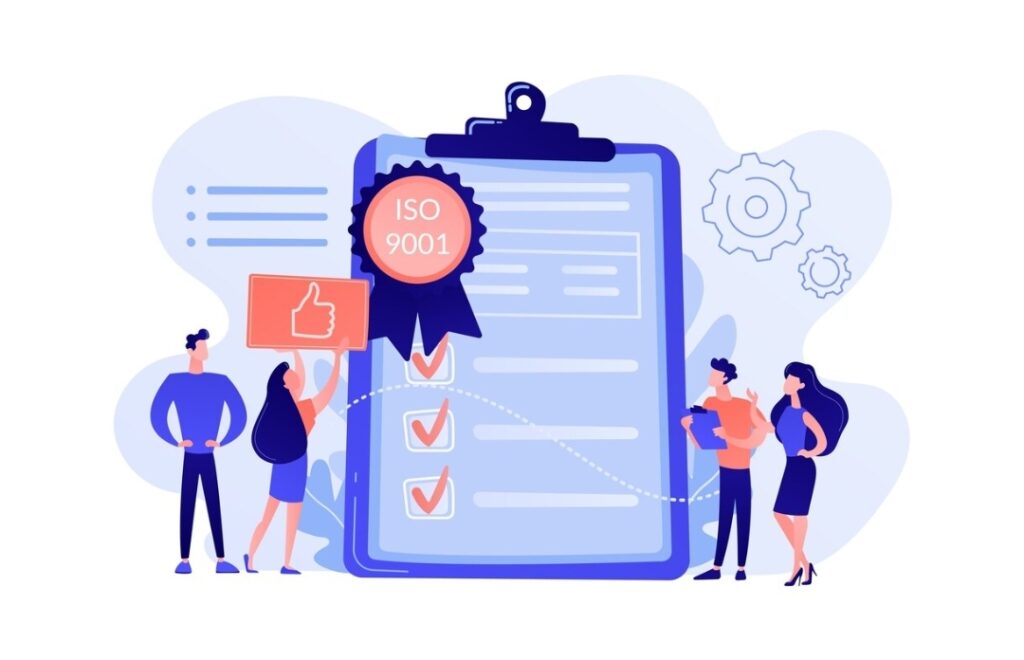Navigating the complex world of laid down standards can be daunting for many businesses. However, with the right guidance, the process becomes much more manageable and can lead to significant benefits for your company. ISO consulting, particularly through services like ISO 9001 consulting, plays a crucial role in helping businesses align with international standards. This alignment not only enhances operational efficiency but also boosts overall growth.
Understanding The Role Of ISO 9001 Consulting Services
ISO 9001 is a globally recognised standard that outlines the criteria for a quality management system (QMS). Businesses seeking to improve their processes often turn to ISO 9001 consulting services for assistance. These services provide expert guidance on implementing and maintaining a QMS that meets the rigorous requirements of ISO 9001.
Engaging with an ISO 9001 consulting service can significantly streamline the process of achieving certification. By providing a structured approach, consultants help organisations identify areas for improvement, establish clear processes, and ensure compliance with the standard. The expertise provided by these consultants can lead to more efficient operations, ultimately contributing to business growth. The ISO 9001 consulting service ensures that businesses can navigate the complexities of the certification process with confidence.
Enhancing Efficiency Through Process Optimisation
One of the primary benefits of ISO consulting lies in process optimisation. When businesses operate without a clear framework, inefficiencies can quickly arise, leading to wasted resources and reduced productivity. ISO consultants work closely with companies to analyse their current processes, identify bottlenecks, and implement improvements.
For example, by adopting a systematic approach to process management, businesses can reduce errors, enhance product quality, and improve customer satisfaction. This not only leads to cost savings but also fosters a culture of continuous improvement within the organisation. The impact of such improvements on business growth cannot be overstated, as efficient processes are the backbone of any successful enterprise.
Moreover, ISO consulting helps in maintaining consistency across all operations. This consistency is crucial for businesses aiming to expand, as it ensures that products and services meet the same high standards, regardless of location or scale.
Strengthening Market Position Through Certification
In today’s competitive market, standing out from the competition is essential for success. Achieving ISO certification can significantly enhance a company’s reputation, making it more attractive to potential clients and partners. ISO consulting services play a vital role in this process, guiding businesses through the certification journey and ensuring they meet all necessary requirements.
Being ISO-certified not only boosts a company’s credibility but also opens doors to new markets. Many industries require or prefer suppliers and partners who have achieved ISO certification, viewing it as a mark of quality and reliability. As a result, businesses that invest in ISO consulting are often better positioned to win contracts and expand their customer base.
Additionally, the certification process itself can uncover areas where the business can improve, leading to further enhancements in performance and customer satisfaction. This dual benefit of enhanced marketability and operational improvement makes ISO consulting an invaluable asset for businesses looking to grow.
For more insights into the benefits of certifications, you can explore this blog post on Why Achieving ISO Certification is Crucial for Business Success.
Risk Management And Compliance
Operating in today’s global market comes with its fair share of risks. From legal requirements to industry regulations, businesses must navigate a complex landscape to remain compliant. ISO consulting provides the expertise needed to manage these risks effectively.
Consultants help businesses understand the specific risks associated with their industry and develop strategies to mitigate them. This proactive approach not only protects the company from potential legal issues but also ensures that it remains in good standing with regulatory bodies. Furthermore, ISO standards often align with best practices in risk management, providing a comprehensive framework that businesses can rely on.
By adopting ISO standards, companies can also improve their crisis management capabilities. In the event of an unforeseen issue, having robust processes in place allows for a quicker response, minimising the impact on the business. This resilience is crucial for long-term growth and sustainability.
For additional reading on the importance of risk management, consider this article Effective Risk Management Strategies for Modern Businesses.
Fostering A Culture Of Continuous Improvement
Finally, one of the most significant advantages of ISO consulting is its ability to foster a culture of continuous improvement within a business. ISO standards are not just about achieving certification; they are about maintaining and enhancing quality over time. ISO consultants encourage businesses to adopt a mindset of ongoing development, where processes are regularly reviewed and improved.
This culture of continuous improvement leads to long-term benefits, including increased efficiency, higher customer satisfaction, and greater innovation. As employees become more engaged in the process, they are more likely to contribute ideas for further enhancements, driving the business forward.
Moreover, this approach ensures that the business remains agile and responsive to changes in the market. In an environment where adaptability is key to success, fostering a culture of continuous improvement gives businesses the edge they need to thrive.
Conclusion
ISO consulting offers businesses a pathway to growth through improved efficiency, enhanced market position, and robust risk management. By working with expert consultants, companies can ensure they meet the stringent requirements of ISO standards, leading to significant benefits in both the short and long term. With the right guidance, businesses can not only achieve ISO certification but also use it as a springboard for ongoing success.
